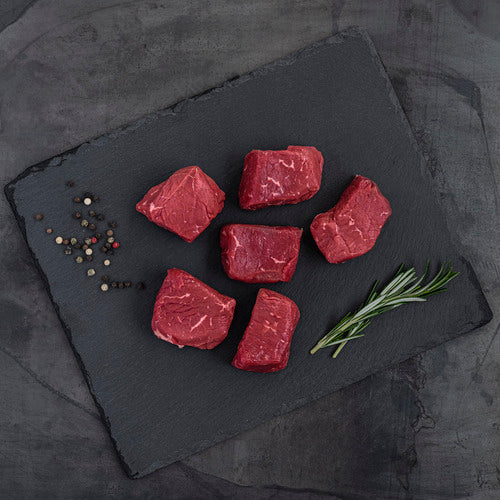
Grass-fed beef does not contain growth hormones . By choosing meats from grass-fed animals, you are supporting an industry that does not use unnecessary hormones or antibiotics.
Hormones are substances that have been used for decades to improve the growth and efficiency of animals. In Canada, they have been used in the beef industry since the 1960s . They have allowed beef farmers to significantly increase meat production. Also called " growth promoters ," these hormones are administered behind the animal's ear in the form of subcutaneous implants.
In 1988 , a law came into force in Europe banning the use of growth promoters in cattle breeding. In Canada and the United States , hormones are still used today to promote muscle tissue growth in cattle.
Farmers can give their animals hormones to improve their growth, but they must still follow specific rules for using these hormones. The Canadian Food Inspection Agency (CFIA) enforces these rules by regularly inspecting meat production facilities. These rules are designed to limit hormone residues in meat products to very low levels.
So if hormones have been used for over fifty years and there are safety regulations, why choose hormone-free meat?
Researchers are questioning the safety of meat containing growth hormones. They fear that its consumption could disrupt the human endocrine system . The presence of growth promoters in meat could also increase the risk of cancer linked to estradiol, an estrogen, according to an article published in the magazine Québec Science .
Several studies contradict each other and are contested by many scientists. They believe that the evaluation methods are not reliable enough to allow a definitive conclusion regarding the effects of hormone residues on humans.
Currently, there is little evidence to support or refute the safety claims of those who advocate hormone-free meat. However, it is important to be aware of this debate and make your own decision regarding growth hormones in meat.
It is important to remember that by raising beef using growth hormones, factory farms are prioritizing productivity over animal welfare. Confined animal feeding operations are defined as factory farms , involving large numbers of animals raised in enclosed spaces . On these farms, animals are often given large amounts of antibiotics . In contrast, grass-fed beef is allowed to roam freely in its pasture, and is mostly raised without antibiotics .
When you choose grass-fed beef, you can rest assured that you are supporting an industry that places great importance on animal welfare and the environment .
At Mon Beau Bon Bœuf , all our beef farmers feed their animals on grass. They raise their cattle without hormones or antibiotics , while respecting the environment . To purchase grass-fed beef , visit our online butcher shop.
